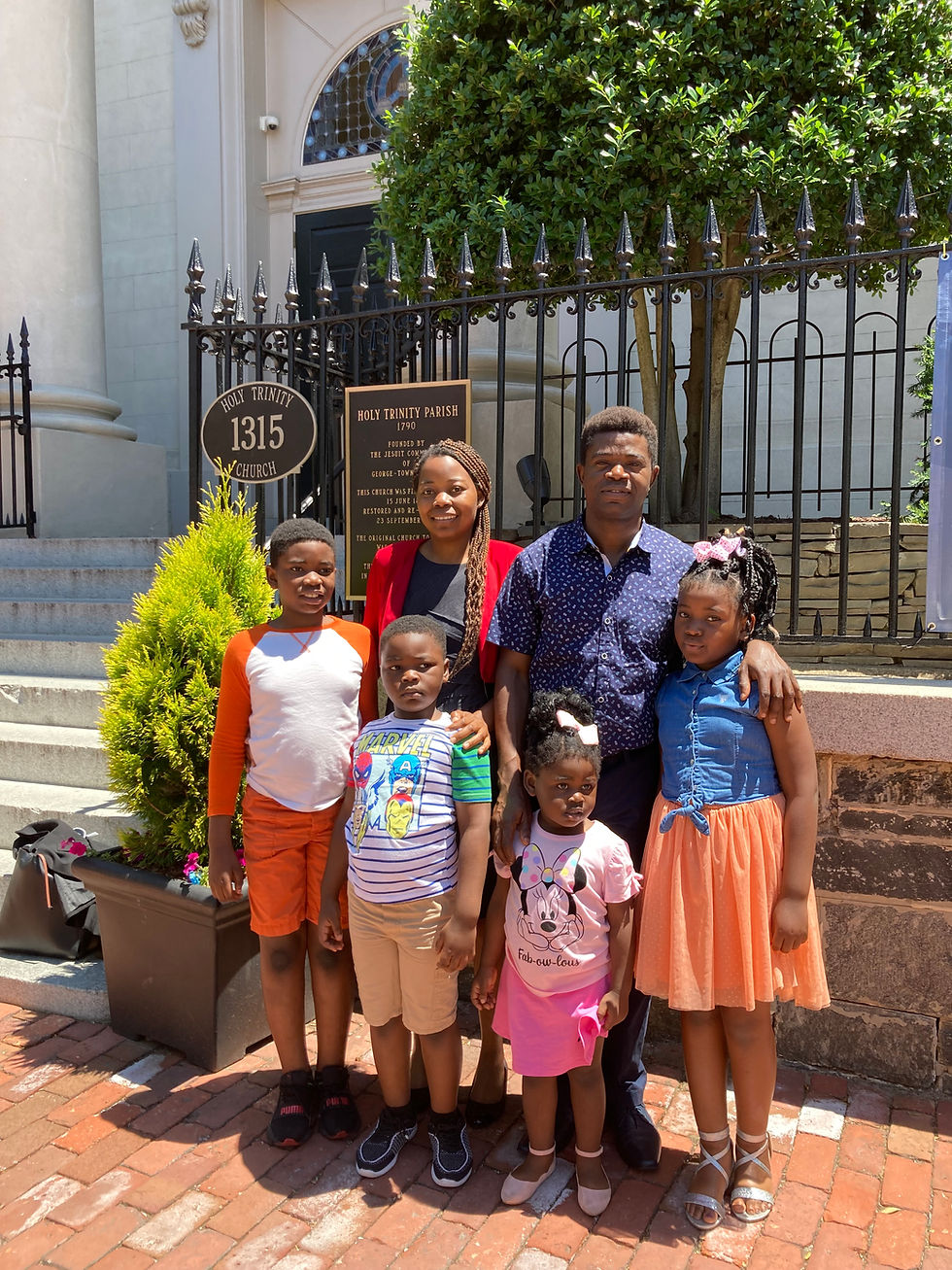In Normal Times, I Was Always Too Busy
- Holy Trinity Catholic Church
- Apr 16, 2020
- 3 min read
By Amanda Erickson

I was too busy to focus on cooking and too busy to make sure I bought only what I needed and too busy to use all my scraps. Instead, I rushed through the grocery store, picking up what looked appealing. When I was tired after work, I’d order take out, tossing leftovers because they’d gone bad.
I was often too busy to walk or bike to see friends. I’d even ditch public transportation during busy weeks, choosing instead to sit in traffic.
I was too busy to think about what could be fixed or mended or reused. When I needed something, I bought it. When I wanted something, I bought it too—often without really considering whether it was essential.
In these last few weeks, all of that has changed.
I’ve been at home for 40 days, socially distanced from family, friends and neighbors. It is a scary time. Though my loved ones are safe, I pray for the sick and mourn the dead. I worry for the doctors, nurses and workers on the front line.
But the stay at home orders imposed throughout the DMV have also given me the gift of uninterrupted time. Beyond work, there is nothing I have to do, nowhere to go, no obligations to fulfill.
I see how this has changed many fundamentals of my life. When I need to go somewhere, I walk. I am cooking more, and more thoughtfully. I spend time reimagining leftovers and scraps. I am composting and growing my own herbs now too—little luxuries made easier by time. I find myself more careful and aware. I have time to sew buttons back on to shirts, to mend broken garden tools.
I’ve also been drawn to joyful pursuits that require no energy—reading on my porch, taking long walks to notice my neighbors’ gardens, reconnecting with loved ones on the phone and through letters.
Through this more mindful existence, I’ve come to see the magnitude of the change I need to make to my own lifestyle in order to honor the earth and the people who live here. I see more clearly than ever that climate change can not be fought around the edges. If I want to cut my carbon footprint, I need to rethink everything.
There are signs that the dramatic lifestyle shifts we’ve all undergone has had an impact on the climate. In China, greenhouse gas emissions have fallen by a quarter since the country began aggressive social distancing in response to the crisis. Global demand for oil and air travel have fallen precipitously. Around the world, pollution is easing. Skies over much of the country are bluer. Fish and birds have returned to many major waterways.
“When this nightmare finally comes to an end, we will wake up to a radically changed world,” Ed Garcia writes in America magazine. “It can never be the same again. But what our world will become will largely depend on the way we respond now, on the ways we can work together though separated by layers of distancing, on how we can open our eyes and hearts to the things that really matter in our lives: family, friends, people, community, nation and a healthier world.”
I hope this time can leave my own heart open to the ways I can do better.







Comments